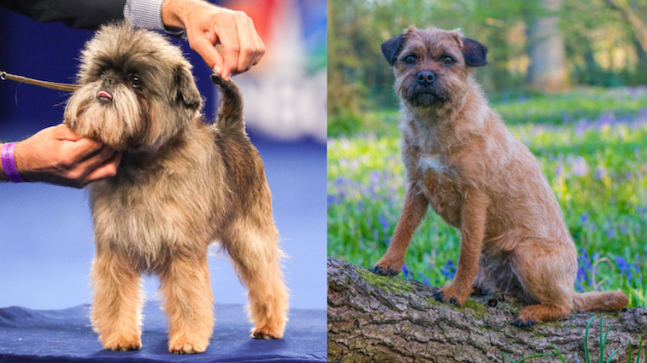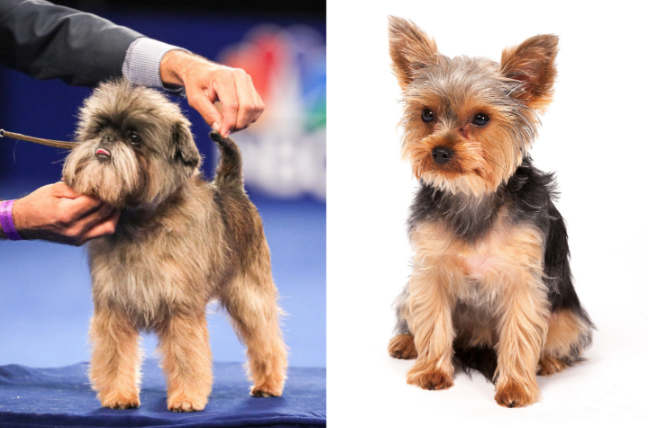Azawakh Dog
The Azawakh is one of the breeds of dog that comes of the Sahel region of Africa particularly those countries Mali, Niger, and Burkina Faso. The sighthound is famous for its sleek and slim body, and its speed and agility.
Here are the main characteristics from the Azawakh:
Appearance: Azawakhs are characterized by their sleek and refined coat that comes in a variety of colors, including brindle, fawn red, white, and. They sport a distinct appearance with a slim, slender body as well as long legs. the narrow head.
Dimensions: These dogs are medium-sized to large in their size. Adult males are typically between 25-29 inches (63 to 74cm) in height at their shoulders, whereas females tend to be a bit smaller.
The Temperament Azawakhs can be described as loyal, independent and reserved. They are frequently described as reserved with strangers but they’re typically loved by their family members.
Exercise requirements: As a sighthound the Azawakh has a high level of energy and needs regular exercise. They love things that allow them to move the legs, and also run which is why an area that is secure and well-fenced is frequently advised.
Training: Azawakhs are intelligent however, they are also independent which can make training somewhat difficult. Socialization early and consistent, positive reinforcement-based learning are essential to influence their behavior.
Health The Azawakh is a robust as well as a healthy dog. They don’t have any known health problems that are hereditary However, as with any breed, they could be susceptible to certain diseases. Regular check-ups with a veterinarian and a balanced diet and a healthy exercise regimen are vital to their health.
Histories: The Azawakhs have an extensive history and are considered to be an ancient breed. They were used traditionally by nomadic Tuareg people to hunt in the extreme Desert conditions in the Sahel.
Azawakh Health and Feeding
Health:
Heart Health:
- Azawakhs may be susceptible to heart problems which include Dilated Cardiomyopathy. Regular vet check-ups and a balanced diet are essential to maintain your cardiovascular well-being.
Eye Health:
- Regular eye exams are suggested to identify and treat any possible issues. This is crucial as certain eye diseases are hereditary.
Joint Health:
- Large breeds, such as the Azawakh could be at risk of joint issues like hip dysplasia. A healthy weight by healthy eating and regular moderate exercise could contribute towards joint wellness.
Parasite Prevention:
- Azawakhs as with all dogs, need to be guarded against parasites like fleas, ticks or intestinal worms. Regularly scheduled veterinary visits could benefit by preventing the spread of parasites.
Vaccinations:
- Check that you Azawakh is current on vaccinations to guard against the most common dog diseases.
Dental Care:
- Regular dental visits, like brushing their teeth as well as giving proper dental chews, could help maintain healthy dental health.
Skin Care:
- Azawakhs have a coat that is short however regular grooming is essential. Look for any indications of skin problems and warrant that the coat is clear of any skin irritations.

Feeding:
Nutritional Needs
- Make sure you feed your dog with high-quality diet that is suited to the nutritional requirements of the Azawakh. Take into consideration the dog’s age, the level of activity, as well as general health when selecting the right diet.
Control of Portion:
- Be aware of the size of your portions to avoid overfeeding which could lead to the development of obesity. The weight acquire can aggravate joint problems and other health issues.
The Regular Feeding Scheduling:
- Create a routine of feeding to benefit in digestion and control the metabolism of your dog.
Fresh Water:
- Make sure you have access to clean and safe water always.
Avoid Certain Foods:
- Certain breeds of dogs might have sensitivities or allergies to specific ingredients. Check the health of your Azawakh for any indications of digestive problems or allergic reactions, and consult with a veterinarian in the event of a need.
Talk to a Veterinarian
- It is important to work closely with your vet to decide on your desirable nutrition for your Azawakh depending on your individual requirements. They will deliver information on specific dietary needs and supplements that could be beneficial.
Azawakh Care and Grooming
Care:
Exercise:
- Azawakhs are a vigorous sporty breed. It is essential to exercise regularly to ensure their mental and physical health. Jogging, long walks, or playing in a safe, secure space can be a great way to meet the requirements of exercise.
Socialization:
- Socialization at an early age and consistently is crucial for warrant that Azawakhs grow into confident and well-behaved adults. Inviting them into different surroundings, people, and other animals at an early age.
Training:
- Azawakhs are highly intelligent, however they may exhibit an individual streak. Positive reinforcement-based methods of training are a good fit for this breed. Begin training early, be patient and use rewards like treats or praise.
Secure Fencing:
- Azawakhs possess a powerful prey drive and are fast runners. A well-fenced yard is vital to stop them from running after small animals. They might aren’t appropriate for off-leash play in areas that are not fenced.
Regularly scheduled veterinary check-ups:
- Regularly check-ups with a vet to check the health of your Azawakh, address any issues or concerns, and assure that they’re current on vaccinations and preventive treatment.
Temperature-related Considerations for
- Azawakhs are able to adapt for warmer environments. In colder climates, offer them with appropriate protection, like an outer coat during cold temperatures.

Grooming:
Coat Care:
- Azawakhs have an extremely fine, short coat which requires only very little grooming. Regular brushing keeps the coat in good condition and eliminates loose hair. They shed, but not too much.
Bathing:
- The bathing routine is usually not frequent unless the dog is dirty. Make use of a mild shampoo for dogs and warrant thorough rinses to prevent skin irritation.
Ear Care:
- Inspect their ears on a regular basis for evidence of infection or buildup. The ears should be cleaned gently when needed, but avoid placing anything in the ear canal.
Dental Hygiene:
- Make sure to brush your Azawakh’s teeth frequently to avoid issues with your teeth. Playing with toys or chewing gum are also a great way to benefit keep your mouth healthy.
Nail Trimming:
- Maintain their nails at an appropriate length. Nails that are too long are uncomfortable and can alter the dog’s gait.
Eye Care:
- Inspect their eyes for indications of discharge, redness or irritation. If necessary, clean the eye’s corners using a soft, moist cloth.
Hygiene:
- Azawakhs generally are clean dogs. But, as with any breed, they could need periodic inspections for skin conditions, especially in areas where irritation is common.
Tail Care:
- Be aware of the tail, particularly when it’s lengthy and hand-like. Be careful in handling it in order to ensure that you do not cause injury to the dog and you.
FAQs
What is the ancestry for the Azawakh breed?
- A Azawakh breed was born from the Sahel region of Africa particularly in Mali, Niger, and Burkina Faso.
What is the standard dimensions of an Azawakh?
- A Azawakhs in adulthood are medium-sized dogs. Males are typically 25 and 29 inches (63 to 74 centimeters) in height at their shoulders, whereas females are a little smaller.
Temperament of Azawakh?
- A Azawakhs are famous as loyal, independent and reserved. They are aloof to strangers, but they are usually affectionate with their family members. Socialization at an early age is crucial.
What amount of exercise do Azawakhs require?
- A Azawakhs are a breed which requires regular exercise. They love things that allow them to exercise and move their bodies.
What is the excellent way to handle Azawakhs great with children and the other animals?
- A Azawakhs are excellent with children as well as other pets when they are introduced to them from an early age. But their prey drive could cause them to be less appropriate for households with small animals, unless they are raised in a group.
Which is grooming requirements to Azawakhs?
- A Azawakhs are a fine, short coat that requires only minimal grooming. Regular brushing, bathing, and the attention paid to the ears, teeth and nails are generally enough.
Is Azawakhs easily trainable?
- A Azawakhs are intelligent, but they can possess an independent nature. Positive reinforcement-based training, beginning early and being consistent are the key to a the success of training.
What health precautions are necessary to consider when treating Azawakhs?
- A: Regular check-ups with your veterinarian are essential. Azawakhs are susceptible to heart ailments joints, joint problems, and a few hereditary ailments. Healthy eating as well as regular exercise and preventive treatment contribute to their overall health.
How much does the Azawakhs lose?
- A The Azawakhs shed, however their short coat means that the amount of shed is typically low. Regular brushing may benefit to keep hair that is loose in check.
Do Azawakhs make great security dogs?
- A Azawakhs are renowned for their loyalty, and can protect their family. Although they are not naturally aggressive their aloofness and alertness to strangers may be effective as watchdogs.






